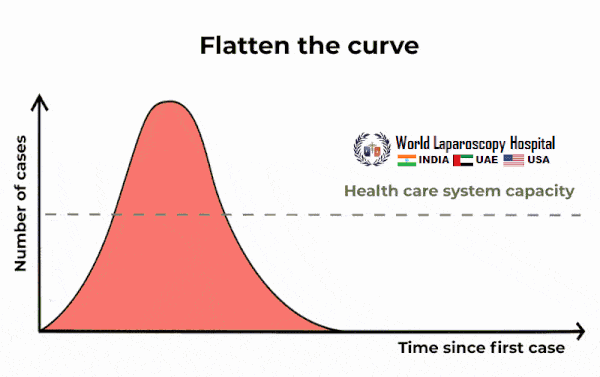-- ALL Newsletter --
2010
2011
2012
2013
2014
2015
2016
2017
2018
2019
2020
2021
2022
2023
2024
2025
Immediate Flattening the Curve of COVID 19 in Necessary for India
India and other countries, experts say, are likely to be hit by tsunamis of COVID-19 cases in the coming weeks without aggressive public health responses. But by taking certain steps canceling large public gatherings, for instance, and encouraging some people to restrict their contact with other governments have a shot at stamping out new chains of transmission, while also trying to mitigate the damage of the spread that isn’t under control.

The epidemic curve, a statistical chart used to visualize when and at what speed new cases are reported, could be flattened, rather than being allowed to rise exponentially.
It has been less than two weeks since India imposed a coronavirus lockdown so strict that almost all the outdoor activities were banned. They’re not essential activities, plus we have been told not to do anything that could divert emergency services resources.
We were hugely worried about what was happening in Italy and Spain said our Prime Minister. If we didn’t shut down quickly enough, the pain was going to go on for a very long time.

People of all ages can be infected by the new coronavirus (2019-nCoV). Older people, and people with pre-existing medical conditions (such as asthma, diabetes, heart disease) appear to be more vulnerable to becoming severely ill with the virus.

The epidemic curve, a statistical chart used to visualize when and at what speed new cases are reported, could be flattened, rather than being allowed to rise exponentially.
It has been less than two weeks since India imposed a coronavirus lockdown so strict that almost all the outdoor activities were banned. They’re not essential activities, plus we have been told not to do anything that could divert emergency services resources.
We were hugely worried about what was happening in Italy and Spain said our Prime Minister. If we didn’t shut down quickly enough, the pain was going to go on for a very long time.

People of all ages can be infected by the new coronavirus (2019-nCoV). Older people, and people with pre-existing medical conditions (such as asthma, diabetes, heart disease) appear to be more vulnerable to becoming severely ill with the virus.






